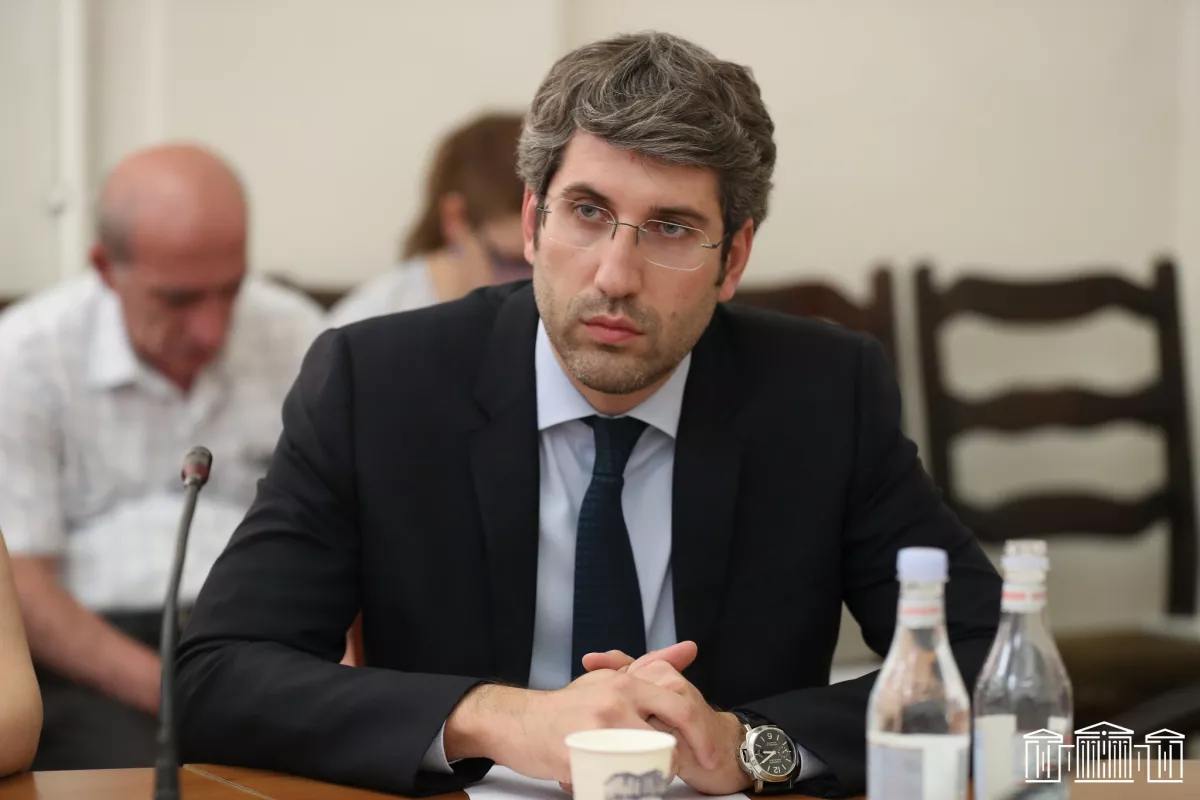Azerbaijan to block revenge opportunities of Armenia Which stalling peace process
Armenian media has once again reported that the country may hold a constitutional referendum.
"The constitutional referendum in Armenia is scheduled for 2027," Justice Minister Grigor Minasyan told reporters. This statement is surprising and even amusing in its specificity regarding the timing of the referendum. It is known that the current parliamentary session will end in 2026.
This raises two possibilities: either the official is very confident that the Civil Contract party will win the elections in two years, or he is signaling that constitutional reform is not a current priority for the government and the parliamentary majority. Our interest in the constitutional reform in the neighboring country primarily stems from the territorial claims against Azerbaijan embedded in Armenia's current Constitution.
Early last year, Armenian Prime Minister Nikol Pashinyan first spoke about the need to reform the constitution with the goal of creating a stable peace in the South Caucasus. Everyone remembers the prime minister's famous allegories, such as the man in red (representing Armenia) and the bulls on the road (representing Türkiye and Azerbaijan), as well as the narrative about the "real" Armenia that should replace mythical Armenia. However, the justice minister (and he is not the first to do so) has disavowed these narratives, noting that during the working meetings of the commission, the issue of changing the first three articles of the Constitution was not discussed, nor was the question of removing the reference to the Declaration of Independence (which directly reflects the claim on Karabakh).

In other words, Yerevan not only has postponed the timeline for constitutional reform but has also highlighted a fundamental mismatch between the anticipated changes and Baku's demands. The minister noted that the current focus is on ensuring a stable parliamentary majority, and the proponents of constitutional reforms aim to enshrine this principle in the future constitution.
The ruling majority in Armenia is leaning towards abandoning the legislative imperative for forming a stable majority following parliamentary elections. Under the Armenian Constitution, the National Assembly is elected through a proportional representation system, and the electoral code guarantees the formation of a stable parliamentary majority—54 per cent of the seats.
According to the legislation, if a stable parliamentary majority is not established after the elections or through the formation of a political coalition, a second round of elections may be held. Previously, the Justice Ministry also indicated that the draft concept includes provisions concerning the form of government, the scope of presidential powers, the enshrinement of social, economic, and cultural rights in the chapter on fundamental human rights, among other issues.
However, Yerevan must understand that adopting a new constitution without removing the reference to the Declaration of Independence would mean, in effect, creating a new cycle of hostility between Armenia and Azerbaijan. It is one thing to lack the resolve to amend the old law, and quite another to dare to include territorial claims against neighbours in the new law. Such an action would be unequivocally interpreted as blatant revanchism and could almost be seen as a casus belli.

However, it’s also possible to view the situation from a more positive perspective. 2027 is not far off, and the likelihood of the Civil Contract party winning the elections is relatively high given the lack of a real political alternative. The fact that a new constitution is being considered rather than just changes to the existing one offers hope that Armenian authorities might ultimately embrace a rational approach and achieve a historic breakthrough.
It is possible that the troublesome reference to the Declaration of Independence may not become part of the new constitution. For the ruling party, it might be easier to avoid including a provocative clause that could spark protests than to remove it in a highly visible manner.
"We discussed and reached a consensus—what we need is a new constitution, not just constitutional changes," Minasyan noted. He noted that detailed work on the complex document will follow, along with public consultations. There is a possibility that over the next three years, the government might succeed in convincing the Armenian public to accept the new preamble, even though it is currently trying to convince the same public that "this is not about that." A major caveat is needed here—if Armenia actually desires it.

Serious doubts persist on this front. The frantic arming of the "land of stones" by foreign patrons and the ruling party’s reluctance to break free from the "benefactors'" influence suggest that Armenia is pursuing a strategy of stalling and delaying the peace process, hoping for a future opportunity for revenge.
However, Azerbaijan will not wait for this distant future and will do everything in its power to prevent Armenia from gaining a chance for revenge. After that, no one will offer peace to this country.








